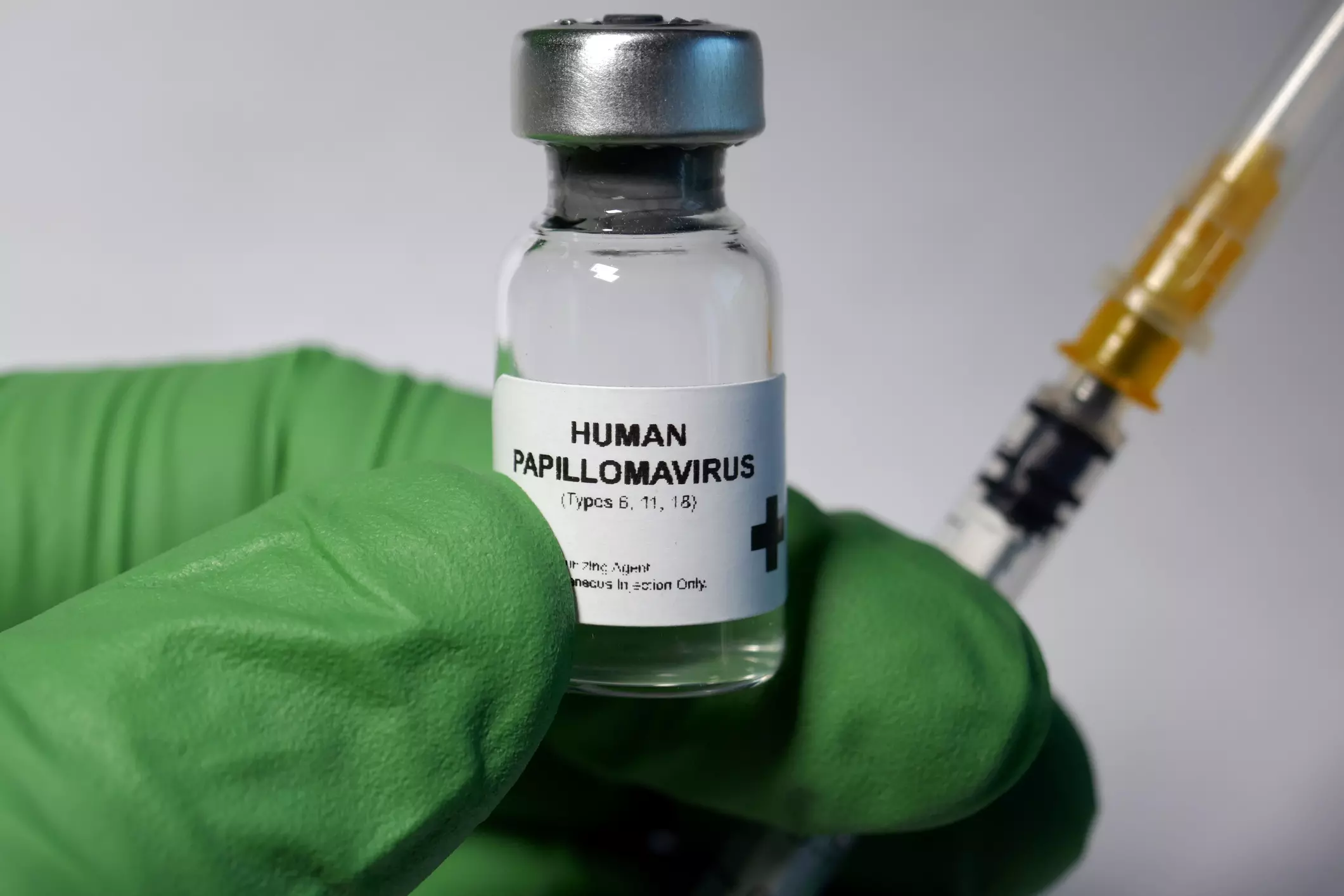
Human papillomavirus vaccine - administration of antigenic material (vaccine) to stimulate an individual's immune system to develop adaptive immunity to a pathogen. Photo: iStock
Cervical cancer vaccination: What you need to know and what FM said in Budget speech
India accounts for about a quarter of all cervical cancer incidences and nearly a third of global cervical cancer deaths.

Indian girls in the age group of 9-14 years will be encouraged by the government to get vaccinated to prevent cervical cancer, Union Finance Minister Nirmala Sitharaman said on Thursday (February 1) while presenting the Union Budget 2024-25 in the Lok Sabha.
Last month, the Union Health Ministry said it is closely monitoring incidences of cervical cancer in the country and is in regular touch with states and various health departments on this.
Cervical cancer deaths in India
In June 2022, based on fresh evidence on disease burden, evidence on the effectiveness of single dose of HPV vaccine, clinical trial data and experience of the Sikkim government on the introduction of the vaccine, the National Technical Advisory Group on Immunization recommended the introduction of HPV vaccine in the universal immunisation with "a one-time catch-up for 9-14-year-old adolescent girls followed with routine introduction at nine years", the Rajya Sabha was told.
India is home to about 16 per cent of the world’s women, but accounts for about a quarter of all cervical cancer incidences and nearly a third of global cervical cancer deaths.
Indian women face a 1.6 per cent lifetime cumulative risk of developing cervical cancer and one per cent cumulative death risk from cervical cancer, officials had stated.
According to some recent estimates, every year almost 80,000 women develop cervical cancer and 35,000 die due to it in India.
Indian vaccines for cervical cancer
Presently, the Serum Institute's made-in-India vaccine against cervical cancer, CERVAVAC, is available in the private market for about Rs 2,000 per dose.
MSD Pharmaceuticals Pvt Ltd, a wholly-owned subsidiary of Merck Sharp and Dohme (known as Merck and Co, Inc in the US and Canada) continues to sell its HPV vaccine Gardasil 4 (quadrivalent vaccine) in India which is currently priced at Rs 3,927 per dose.
Over 3 lakh deaths globally in 2020
According to the World Health Organization (WHO), cervical cancer is the fourth most common cancer in women globally with an estimated 604,000 new cases and 342,000 deaths in 2020.
The highest rates of cervical cancer incidence and mortality are in low- and middle-income countries. This reflects major inequities driven by lack of access to national HPV vaccination, cervical screening and treatment services and social and economic determinants.
Causes of cervical cancer
Human papillomavirus (HPV) is a common sexually transmitted infection that can affect the skin, genital area and throat. Almost all sexually active people will be infected at some point in their lives, usually without symptoms. In most cases the immune system clears HPV from the body. Persistent infection with high-risk HPV can cause abnormal cells to develop, which go on to become cancer, says WHO.
Vaccines
As of 2023, there are 6 HPV vaccines available globally. All protect against the high-risk HPV types 16 and 18, which cause most cervical cancers and have been shown to be safe and effective in preventing HPV infection and cervical cancer.
As a priority, HPV vaccines should be given to all girls aged 9–14 years, before they become sexually active. The vaccine may be given as 1 or 2 doses. People with reduced immune systems should ideally receive 2 or 3 doses. Some countries have also chosen to vaccinate boys to further reduce the prevalence of HPV in the community and to prevent cancers in men caused by HPV, said WHO.
Effectiveness of vaccines
All vaccines are highly efficacious in preventing infection with virus types 16 and 18, which are together responsible for approximately 70% of cervical cancer cases globally. The vaccines are also highly efficacious in preventing precancerous cervical lesions caused by these virus types, according to WHO.
Any side effects of vaccines?
WHO has said HPV vaccines are safe and there are no side effects reported. “Data from clinical trials and initial post-marketing surveillance conducted in several continents show HPV vaccines to be safe.”

